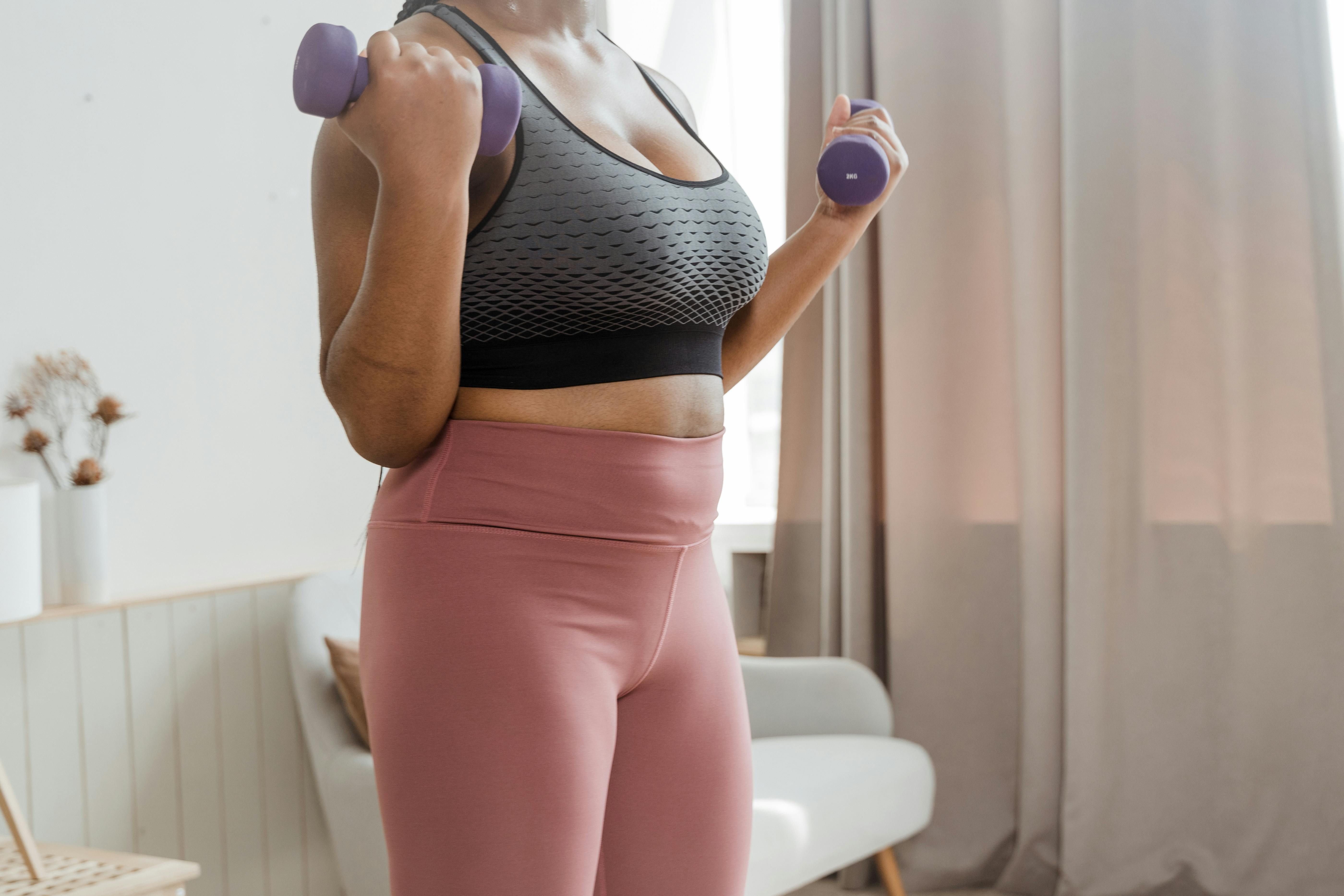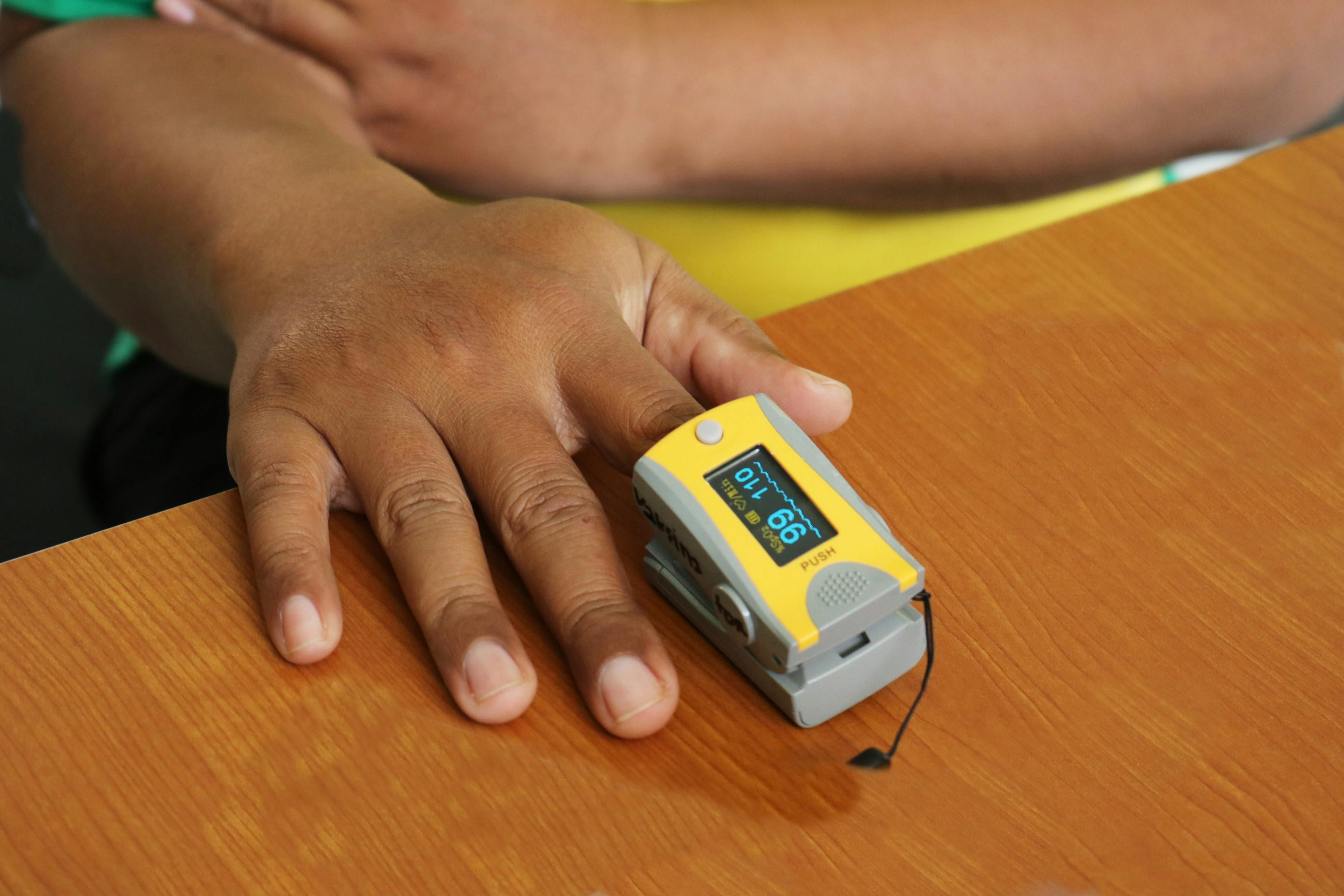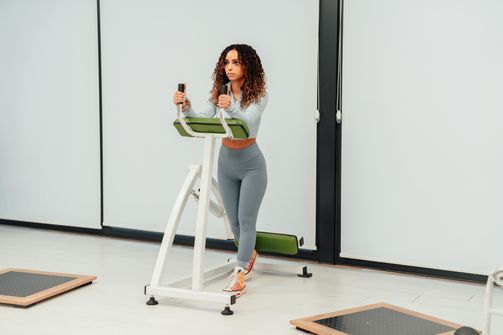
Separating Fact from Fiction: Do Detox Drinks Really Work?
Detox beverages have gained massive popularity in recent years, with promises of everything from quick weight loss to complete bodily "cleansing." Fro...

Hello, wonderful women out there! Ever found yourself jolted awake in the middle of the night, gasping for air, or being nudged by a partner annoyed by your snoring? It’s not just an inconvenience; it could be a sign of sleep apnea. But here’s a twist: tackling weight loss might just be your secret weapon in this battle.
Intrigued? Let’s unravel this mystery together.
Sleep apnea isn’t just about making noise at night; it’s a serious condition where breathing repeatedly stops and starts during sleep, causing significant disruptions to the sleep cycle and overall health. According to the American Sleep Apnea Association, an estimated 22 million Americans are grappling with sleep apnea, yet a striking number of these cases remain undiagnosed, leaving many without the critical care they need.
This condition goes far beyond leaving you tired the next day. It can spiral into severe health issues, including hypertension, cardiovascular disease, and type 2 diabetes, highlighting the critical need for awareness and proactive management.
The repeated interruptions in breathing deprive the body of oxygen, leading to increased stress on the heart and other organs, which can exacerbate or even lead to new health complications.
Furthermore, the chronic sleep deprivation associated with sleep apnea can impair cognitive function, mood, and overall quality of life, making it imperative not just to view it as a minor inconvenience but as a significant health concern that requires attention and treatment.

It’s a common myth that snoring is a gentlemen’s club—nope, ladies are members too! A bunch of reasons can lead to women becoming part of the nighttime orchestra, such as hormonal rollercoasters, tipping the scales a bit too much, and just how our airways are built.
Digging into some brainy research, a study in the Journal of Clinical Sleep Medicine points out that postmenopausal women have a higher ticket in the snore-and-more (read: sleep apnea) lottery.
Why? It seems those dipping hormone levels play a bit of a trick on the muscle tone in the airway. So, it’s not just about “why do fat people snore?” or “can losing weight help sleep apnea?”—there’s a whole hormonal ballet influencing it too!
Here’s a piece of good news for anyone wrestling with sleep apnea: tipping the scales in your favor by losing weight can make a significant dent in your symptoms.
Delving into the specifics, a pivotal study published in the American Journal of Respiratory and Critical Care Medicine discovered that even modest weight reduction could lead to a substantial decrease in the severity of obstructive sleep apnea. This isn’t just about shedding a few pounds; it’s about transforming your nights and potentially sidelining the CPAP machine.
The study indicated that individuals who lost about 10% of their body weight saw a remarkable 32% reduction in the severity of their sleep apnea symptoms. This suggests that for some, embarking on a weight loss journey could indeed make the difference between being dependent on mechanical assistance to breathe at night and enjoying a natural, restful sleep.
It’s a compelling argument for considering weight management as a key strategy in managing or even mitigating the effects of sleep apnea.

When we talk weight loss and its superhero abilities against sleep apnea, think about it like this: every pound lost is a step toward a quieter, more peaceful night. It’s not just about the scale or fitting into those jeans from high school; it’s about giving your body the best shot at a good night’s sleep.
Researchers have put numbers to this phenomenon. A study highlighted by the National Institutes of Health demonstrated that folks with mild to moderate sleep apnea saw significant improvements after losing weight.
Specifically, a weight reduction can lead to a notable decrease in the number of apnea events per hour. So, what we’re looking at isn’t just anecdotal; it’s backed by science. This isn’t about vanity pounds; it’s about breathing easier when the lights go out.
Plus, let’s not forget the overall health perks that come with shedding extra weight - from better heart health to improved metabolic rates. And while we’re making lifestyle changes, tossing in a healthy diet and regular exercise can amplify these benefits, making that path to a snore-free night a little less bumpy.
Absolutely, it’s vital to debunk a common myth: the notion that sleep apnea is an exclusive guest in the lives of those carrying extra weight. According to the Journal of Clinical Sleep Medicine, sleep apnea can sneak up on anyone, of any shape or size. That’s right, skinny people are not immune to this nocturnal bother.
Why does this happen, you ask? Well, the plot thickens beyond the matter of body weight. Genetics, for example, can play a significant role. If your family history includes chapters of sleep apnea, your own story might be more likely to feature it as well.
Then there’s the structure of your jaw or airway; some individuals are born with narrower airways or other physical features that predispose them to sleep apnea. And let’s not overlook allergies, which can inflame your airway, making nighttime breathing more of a challenge.
This broad spectrum of causes highlights a crucial point: awareness and screening for sleep apnea should be widespread. It’s not solely about stepping on the scale but about being mindful of a range of risk factors and symptoms. So, no matter if you’re as skinny as a model or if you’re on the heavier side, if you’re dealing with symptoms like loud snoring, daytime fatigue, or waking up abruptly gasping for air, it’s a good idea to consult with a healthcare provider.
Remember, sleep apnea is quite the equal-opportunity disruptor and doesn’t pick its victims based on their weight.
In the realm of snoring and sleep apnea, obesity plays a lead role, much like a villain in a nighttime saga of disrupted sleep. The Journal of the American Medical Association’s stats paint a stark picture, revealing that a staggering 70% of American adults tip the scales into overweight or obesity.
This isn’t just a number; it’s a direct reflection of the burgeoning sleep apnea crisis sweeping across the nation. But let’s peel back the layers and see why excess weight is such a heavy hitter in the sleep disorder arena.
Imagine the body’s airway as a narrow road. Now, add extra weight, particularly around the neck area, and you’ve got yourself a roadblock. This added girth squeezes the airway, making it a tight squeeze for air to pass through, especially when the body is at rest during sleep.
The result? A cacophony of snores, punctuated by dangerous pauses in breathing – the hallmarks of sleep apnea. This condition isn’t just an inconvenience; it’s a red flag for a slew of health risks, including hypertension, heart disease, and even stroke.

Who knew your kitchen could be a secret weapon against snoring? Diving into the culinary world might just be the trick you need. Think about it: swapping out those late-night snacks for foods rich in magnesium and omega-3 fatty acids could be a real game-changer. These aren’t just fancy nutrients; they’re your airway’s best friends, working to keep those muscles toned and inflammation at bay. Picture your airway as a smooth, open road, all thanks to the right fuel.
And get this, a study featured in the American Journal of Lifestyle Medicine throws a spotlight on how tweaking your diet, along with shedding a few pounds, could turn down the volume on your nighttime concert. It’s not about going on a drastic diet but making smarter food choices that could lead to a quieter, more restful night.
So, next time you’re grocery shopping, remember that those omega-3 packed salmon fillets or magnesium-rich leafy greens could be your ticket to a snore-free zone. It’s all about hitting the right notes with your diet to keep those airways clear and serene.
The CPAP machine often stands as the primary treatment option for obstructive sleep apnea (OSA), yet it’s not the be-all and end-all solution. However, it can significantly bolster weight loss endeavors by ameliorating sleep quality.
This improvement can, in turn, rev up your metabolism. An insightful study highlighted in Obesity Reviews reveals that individuals employing continuous positive airway pressure (CPAP) noticed a decrease in daytime sleepiness.
This reduction makes it simpler for them to remain active and dedicated to their weight loss regimen. By addressing loud snoring and promoting better overall health, the CPAP device doesn’t just tackle sleep apnea but also aids in mitigating related health risks like type 2 diabetes and gaining weight, aligning with the goal of treating sleep apnea for improved health conditions.
While CPAP treats sleep apnea symptoms, focusing on weight loss addresses one of the condition’s fundamental triggers. Research from the University of Pennsylvania demonstrates that patients can substantially decrease or even eradicate the severity of their sleep apnea by reaching and sustaining a healthy weight. This insight offers a glimmer of hope for those seeking a remedy that transcends the confines of the continuous positive airway pressure (CPAP) mask.
Shedding those extra pounds not only eases the burden on one’s upper airways but also improves overall health, potentially reducing the reliance on oral appliances and positive airway pressure (CPAP) treatments. It’s a clear indication that weight loss could be a potent treatment for sleep apnea, aligning with lifestyle changes to enhance health conditions and minimize loud snoring, thereby contributing to the fight against obstructive sleep apnea (OSA) without solely depending on medical devices.

The Our Prime Fasting App stands out as a particularly innovative tool for those aiming to manage sleep apnea through lifestyle modifications. Tailored to meet individual needs, this app offers comprehensive features including personalized fasting schedules, insightful progress tracking, and nutritional guidance designed to facilitate weight loss and improve metabolic health.
By empowering users to adopt and maintain intermittent fasting effectively, our Prime Fasting App plays a crucial role in reducing the severity of sleep apnea symptoms. Its user-friendly interface and supportive community further enhance the journey towards a healthier lifestyle, making it an invaluable ally for individuals seeking to improve their sleep quality and overall well-being through the principles of intermittent fasting.
As we wind down our journey through the twists and turns of sleep apnea and shedding those extra pounds, here’s the thing: it’s not just about facing hurdles; it’s about spotting the light at the end of the tunnel.
Getting a grip on how your weight and your zzz’s dance together, with the right know-how and tools in your kit, means you’re all set to flip the script on your sleep saga. Just a heads-up, every little step you take towards tipping the scales in your favor is basically a moonwalk towards snagging that sweet, sweet dream time.
A: Sleep apnea is a condition where your breathing repeatedly stops and starts during sleep, leading to disrupted sleep and increased risk for serious health issues such as hypertension, cardiovascular disease, and type 2 diabetes. It’s not only about snoring or feeling tired; it’s a significant health concern requiring attention.
A: Yes, women can and do have sleep apnea. While it may be more commonly diagnosed in men, women are also at risk, especially postmenopausal women due to hormonal changes that can affect the muscle tone in the airway.
A: Weight loss can significantly reduce the severity of sleep apnea symptoms. Losing about 10% of body weight can lead to a 32% reduction in the severity of sleep apnea, making weight management a key strategy for dealing with this condition.
A: Absolutely. While obesity is a major risk factor, sleep apnea can affect individuals of any size due to genetics, the structure of the jaw or airway, and other factors like allergies. It’s important for everyone to be aware of the symptoms and risk factors, regardless of body size.
A: Obesity can lead to extra tissue around the neck area, squeezing the airway and making it more difficult for air to flow freely. This can cause snoring and the breathing interruptions characteristic of sleep apnea.
A: Yes, incorporating foods rich in magnesium and omega-3 fatty acids can help. These nutrients are known for maintaining muscle tone and reducing inflammation, potentially easing snoring and sleep apnea symptoms.
A: While CPAP (Continuous Positive Airway Pressure) is a common and effective treatment for sleep apnea, weight loss and lifestyle changes can also play a crucial role in managing and sometimes significantly reducing the severity of the condition.
For those looking to delve deeper into the topics covered in this article, here is a selection of resources that offer additional insights and information:

Detox beverages have gained massive popularity in recent years, with promises of everything from quick weight loss to complete bodily "cleansing." Fro...

Staying hydrated is essential for your overall health, but plain water can get a little boring. The good news is that infused water—packed with fruits...

In recent years, the rise of non-alcoholic spirits has taken the social scene by storm, offering women (and everyone!) the opportunity to enjoy a craf...

Socializing with cocktails can be fun, but many traditional drinks are loaded with sugar and artificial ingredients that may leave you feeling less th...

The Female Athlete Triad is a serious medical condition that affects physically active women and girls, especially those involved in competitive sport...